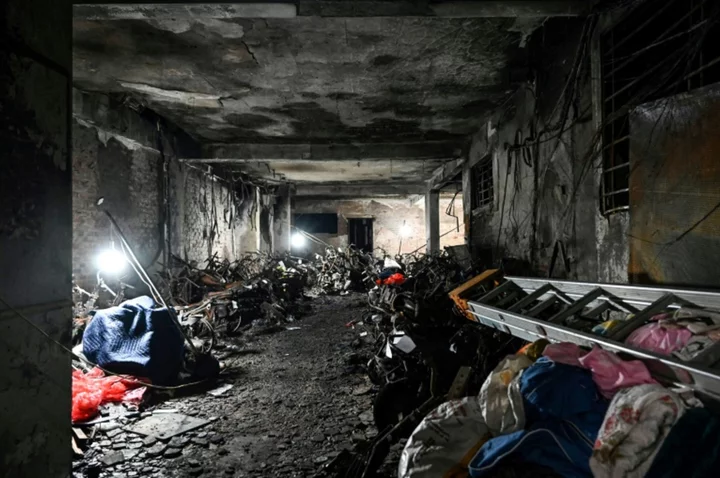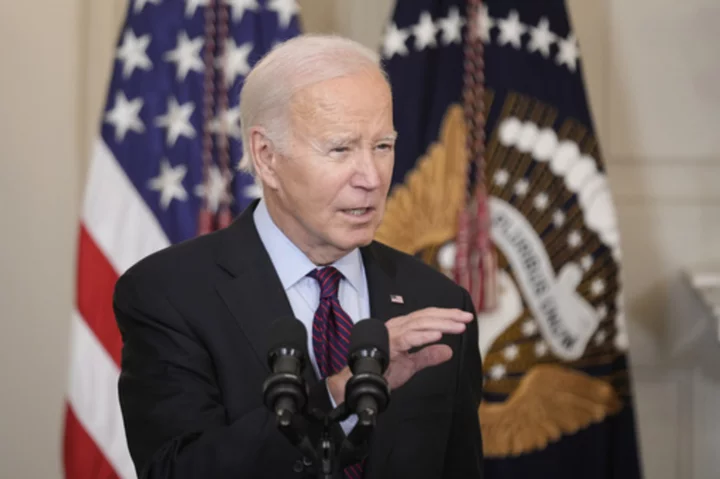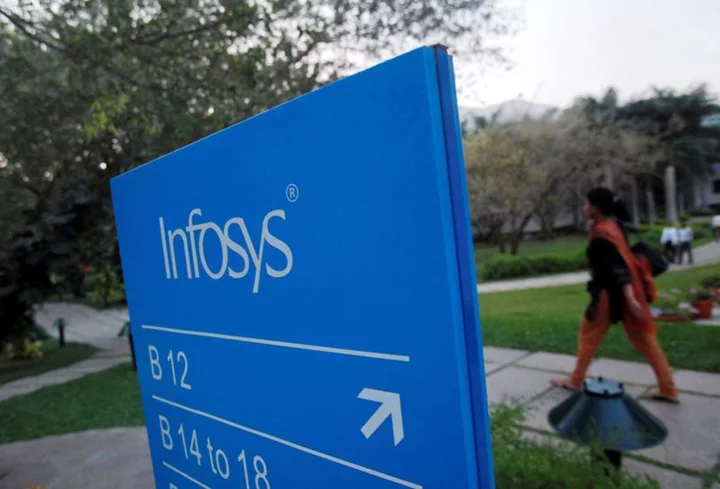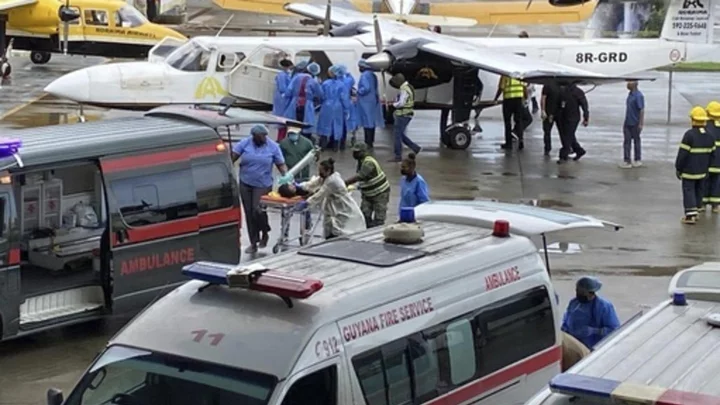Vietnam on Thursday ordered nationwide checks on small apartment buildings after a fire tore through a block in Hanoi, killing 56 people in the country's deadliest blaze in two decades.
The fire started before midnight on Tuesday in the motorbike parking floor of the building, located down a narrow alley in a densely populated area of southwest Hanoi.
Neighbours and residents of the block said they heard screaming as people struggled to escape through barred windows.
The building had only a single exit and no emergency ladder on the outside. One of the four sides had no windows at all, and another had only tiny ventilation slots.
Following the tragedy, police across the communist-run nation have been asked "to inspect fire prevention systems of mini apartment blocks and highly populated rent places".
"Violations must be seriously punished," the ministry of public security said in an online statement.
Hanoi police have arrested the owner of the building.
State media said Thursday that an initial investigation found the 10-storey block had breached its construction licence, given in 2015, to build six storeys.
At least four children were among the victims. Thirty-seven other people were also injured. Several are still in shock after the accident, police and hospitals said.
After the blaze was extinguished, photographs from the site showed a line of charred motorbikes in the parking area, soot-stained clothes on washing lines outside windows and a small rope ladder hanging from a balcony.
- Densely populated -
Vietnam has a population of 100 million people, a third of whom live in densely populated urban areas.
According to official figures, Hanoi and Ho Chi Minh City are the two locations with the nation's highest population density, with 2,398 and 4,363 people per square kilometre respectively.
To meet the demands for accommodation, Vietnam in 2014 legalised small apartment blocks, known locally as "mini apartments".
They must comprise at least two fully-equipped apartments, with shared lifts or a staircase. These are mostly owned and built by private individuals, and sometimes later resold or rented to low-income and migrant workers.
The fire this week was the deadliest in Vietnam since October 2002, when a blaze killed 60 people at the International Trade Centre in Ho Chi Minh City.
But the country has experienced several serious fires in recent years, many at entertainment venues.
A year ago, a karaoke bar blaze near Ho Chi Minh City killed 32 people and injured 17. The owner was later arrested on charges related to breaching fire prevention regulations.
In the aftermath, the prime minister ordered an inspection of all high-risk venues.
But many businesses have complained the regulations are too onerous. Some have struggled to meet the requirements and remain closed.
Another 13 people died in 2016 in a karaoke venue in Hanoi following a fire.
tmh/aph/pdw/qan









